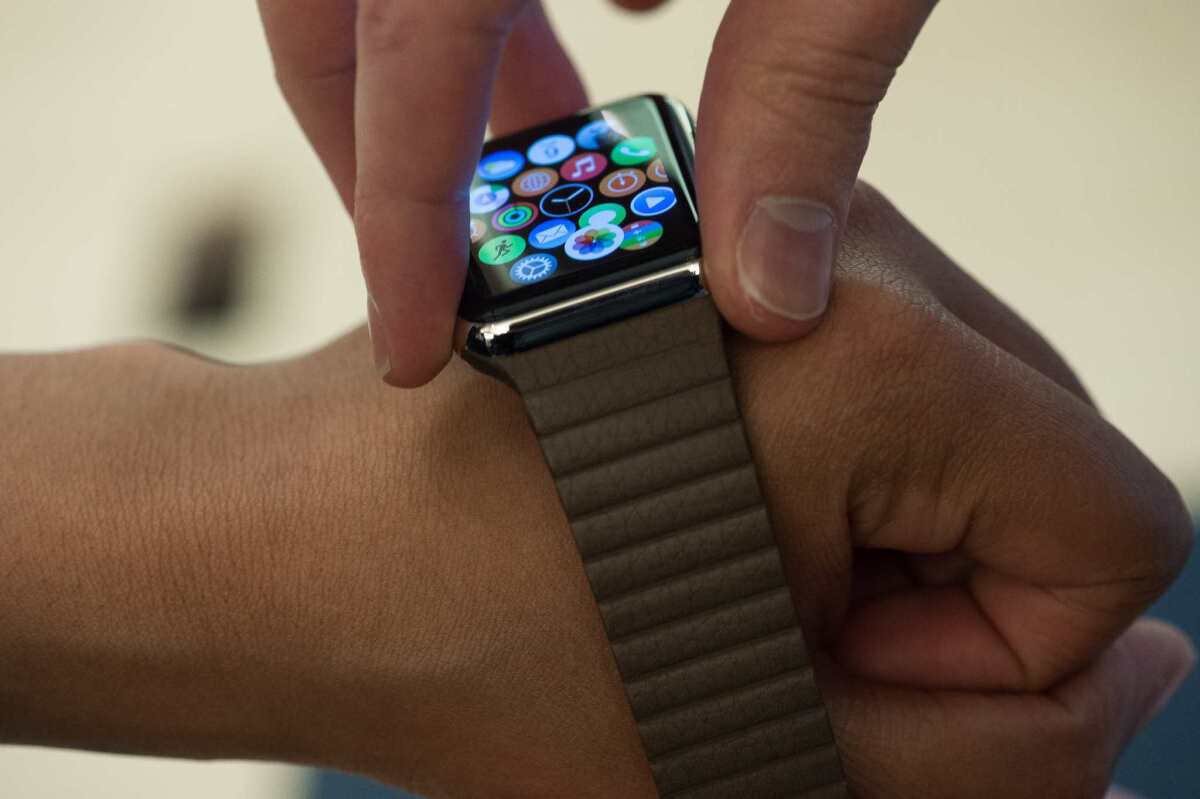Newsletter: Big Tech wants in on healthcare. What could go wrong?

- Share via
I’m Business columnist David Lazarus, with a look today at the growing role tech companies are playing in healthcare.
There were a handful of healthcare-related developments in recent days involving three of the biggest names in tech.
First, Sundar Pichai, chief executive of Alphabet and its Google subsidiary, said at the World Economic Forum at Davos, Switzerland, that healthcare represents a huge opportunity to improve people’s lives using artificial intelligence — something that, not coincidentally, Google is heavily invested in.
“Look at the potential here,” he said. “In lung cancer, for example, five experts agree this way and five agree the other way. We know we can use artificial intelligence to make it better.”
Oh, and don’t worry. He said Google will totally respect people’s medical privacy (cough).
Meanwhile, Amazon filed trademark applications around the world for “Amazon Pharmacy.” We’ve known an Amazon-run online drugstore was likely after the company purchased the online pharmacy PillPack in 2018.
The thinking among industry observers is that Amazon would get the hang of things by filling prescriptions for its thousands of employees. Then it would open its digital doors to the rest of us, and probably at prices that undercut established players such as CVS and Walgreens.
The Amazon Pharmacy trademarks suggest that day is drawing closer. And it’s a given Amazon will seek to dominate online drug sales just as it aims to dominate every other retail sector it touches.
Finally, Apple took another step into the world of well-being by announcing an “Apple Watch Connected” program, aimed at getting gyms to give perks to Apple Watch wearers, including discounts.
This is Apple’s latest bid to make the Apple Watch more a medical and wellness diagnostic tool than a timepiece.
All these moves reflect the tech industry’s recognition that the $3-trillion U.S. healthcare market represents a massive business opportunity to any company that can introduce money-saving efficiencies.
The danger, needless to say, is that each of these companies actively seeks to profit from customer data — and the data in this case involves your medical condition.
To be sure, they’ll each say (as Google’s Pichai did in Davos) that there’s no reason to worry your pretty head, that your privacy is their paramount concern.
We’ll just have to see. These tech giants are positioned to perform wonders that were never anticipated by existing healthcare regulations. The optimist in me says this is a good thing.
The cynic in me, however, can’t help but suspect that what little privacy we have left is about to vanish in the name of cheaper pills and cutting-edge medical tests.
Enjoying this newsletter? Consider subscribing to the Los Angeles Times
Your support helps us deliver the news that matters most. Become a subscriber.
Now then, here are a couple of recent stories from our pages worth highlighting:
Not playing around: Two state agencies are taking the unusual step of trying to stop Riot Games from paying out $10 million to female employees as part of a settlement over a gender discrimination class-action suit. The state thinks the women could be entitled to as much as $400 million instead.
We’re No. 3! Spain recently surpassed the U.S. to become the second most visited country in the world by international tourists, behind only France. U.S. travel industry leaders say they’re ready to launch a new campaign to help the country retake its spot among the world’s top tourism destinations.
Recalls
Toyota and Honda are recalling more than 6 million vehicles because of safety concerns affecting airbags. Toyota’s recall covers 3.4 million vehicles worldwide, including 2.9 million in the U.S., that may have a sensor issue that could prevent airbags from deploying in a crash. Honda’s recall involves 2.7 million cars with potentially faulty inflators that could cause airbags to rupture.
Cardinal Health recalled more than 9 million surgical gowns produced by a contract manufacturer after discovering some of the gowns were produced in unapproved locations that didn’t maintain proper environmental conditions.
Stay in touch
Let me know what you think of the newsletter. My email is [email protected], or you can find me on Twitter @Davidlaz. Also, tell all your pals to join the party.
Until next time, see you in the Business section.
Spare change
In honor of Silicon Valley’s interest in healthcare, some songs with “doctor” featured prominently. Robert Palmer certainly hit the target squarely. As with all things, the Beatles have something to add, as do Jackson Browne and the Thompson Twins. But the greatest all-time doctor tune is this goofy riff from the great Harry Nilsson (and don’t tell me you never wondered about the concoction in question).
Inside the business of entertainment
The Wide Shot brings you news, analysis and insights on everything from streaming wars to production — and what it all means for the future.
You may occasionally receive promotional content from the Los Angeles Times.




